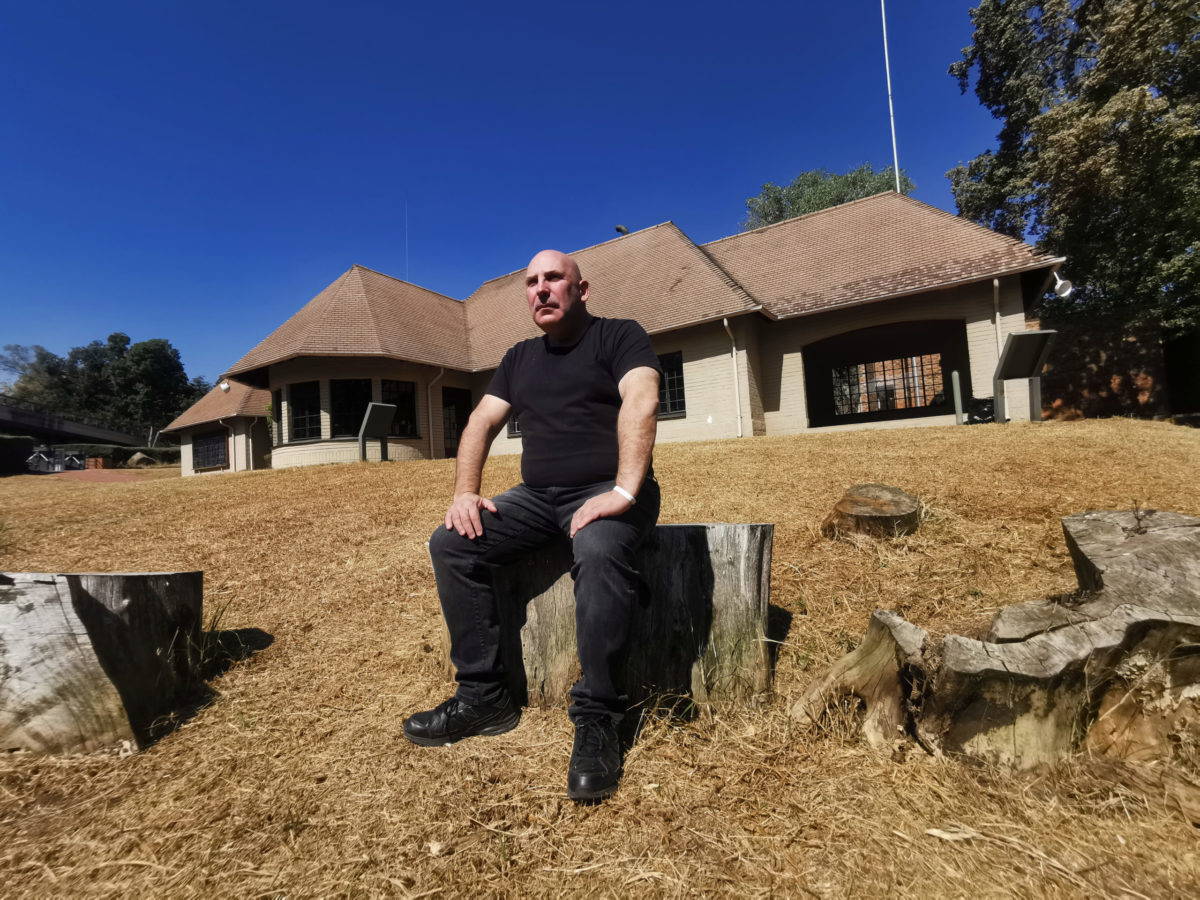click to dowload our latest edition
CLICK HERE TO SUBSCRIBE TO OUR NEWSLETTER


Published
3 years agoon
By
Nicola MiltzNicholas Wolpe, the founder and chief executive of the Liliesleaf Trust, is a man on a sad, lonely mission.
Out of desperation, he has become the mouthpiece for the arts, heritage, and culture sector, one which in his view is dismally neglected and forgotten about.
Liliesleaf Farm in Rivonia, Johannesburg, described as the “nerve centre of the liberation movement”, is hanging by a thread and facing permanent closure due to a funding crisis exacerbated by the pandemic.
Once a hive of activity frequented by many Jewish struggle stalwarts and their famous brothers in arms during the height of the struggle, the secret safehouse turned internationally renowned place of memory, now stands forlorn and overgrown.
It was at Liliesleaf that a group of dedicated activists including Nelson Mandela were arrested during a police raid in 1963 for planning to overthrow the apartheid government. The raid led to the Rivonia Treason Trial.
Among the freedom fighters was Nicholas’ father, Harold Wolpe, Arthur Goldreich, Denis Goldberg, Lionel Bernstein, and James Kantor.
“The Jewish population made up a miniscule percentage of the population and here, these activists comprised 40% of those arrested,” Wolpe told the SA Jewish Report this week.
The once popular tourist attraction hasn’t been open since last March, and like many struggle heritage sites in the country, risks closure.
“Many of our historical sites of memory, including Robben Island, have deteriorated and are a shadow of their former selves,” said Wolpe.
Like Liliesleaf, they are “either on life support or are being forced to close their doors. Some even consider auction in the hope of securing a benefactor who will ensure their survival”, he said.
Many historical sites are dilapidated and falling apart. Wolpe emphasises the repercussions should these crucial places of memory be threatened with closure.
This week, on Freedom Day, 27 April, Liliesleaf launched a crowdfunding campaign in a last-ditch attempt to keep this vital place of history afloat.
“It’s crucial that we keep the memory of the struggle against apartheid alive,” he said.
Wolpe was a baby when police raided Liliesleaf Farm on 11 July 1963, arresting the high command of Umkhonto we Sizwe. His father, Harold, was one of them.
It led to the famous Rivonia Trial at which eight accused, including Nelson Mandela, Walter Sisulu, Govan Mbeki, Ahmed Kathrada, Denis Goldberg, Elias Motsoaledi, Andrew Mlangeni, and Raymond Mhlaba, were sentenced to life imprisonment.
Wolpe’s parents, Harold and AnnMarie, fled into exile shortly after Harold escaped from the Marshall Square police headquarters in Johannesburg by bribing a young warder, just before the start of the Rivonia Trial. Nicholas returned to South Africa as a young man on a mission to bring those defining moments in the history of South Africa to life. He went back to Liliesleaf Farm, and created an independent site of memory.
In spite of many funding challenges, he has shown steadfast commitment and dedication to ensuring that “a unique and seminal epoch in our struggle for freedom isn’t lost and forgotten, but remembered and honoured”.
It hasn’t been easy for Wolpe.
“There exists an indifference to preserving the memory of our struggle. Current government policy doesn’t recognise independent heritage sites so they are denied access to much-needed government funding,” he said.
Places like Liliesleaf rely on donations, tourism, entrance fees, and school visits, all hard hit during the COVID-19 pandemic.
“I fear that our liberation history will fade from our collective consciousness and will hold little meaning, particularly for our youth and future generations,” he said.
“Historical sites like Liliesleaf should be given the attention they deserve and the funding they desperately need. This way, the men and women who sacrificed their own lives so that the South Africans of today could enjoy the fruits of freedom will be honoured.”
He said Liliesleaf recognised the unique, ethical, and principled group of leaders who rose above self-interest and aspirations.
“Service was a fundamental aspect of what they were doing. It’s what drove them as a collective. They didn’t seek affirmation, reward, or publicity. They fought for a free, equal, just society. Together they symbolised the essence of being a servant of the people,” he said.
“South Africa is grappling with corruption, self-interest, and state capture – the very antithesis of the ideals, principles, beliefs, and aspirations of struggle heroes. Places like Liliesleaf stand as a reminder to the youth of the importance of what underpinned our struggle and what can be achieved through a unified commitment defined and underpinned by self-dedication.
“Arts, culture, and heritage is the soul of our nation, and theatres and many places like Liliesleaf are our link to the past, our connection to the present, and our bridge to our future,” Wolpe said.
“Liliesleaf has a crucial and indispensable role to play in highlighting that the Freedom Charter was not merely a statement, but a statement of intent. It was a reality as highlighted by the role individuals across the colour bar played in the fight for freedom, justice, equality, and democracy. This is why we must take a stand before it’s too late.”
The crowdfunding campaign will help to meet basic operating costs such as staff salaries and utilities. It asks people to donate R27 or R60 to commemorate 27 years of democracy, the 27 years Nelson Mandela spent in prison, and the 60th anniversary, this August, since Liliesleaf was purchased. Donations can be made via the Liliesleaf website.

Vicky Zentner
May 2, 2021 at 11:36 am
Could you add a hyperlink to the crowdfunding page?